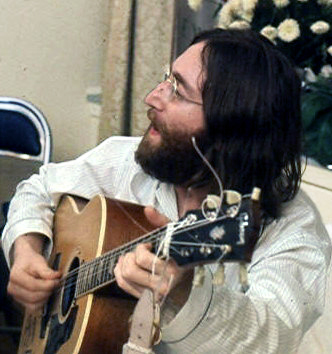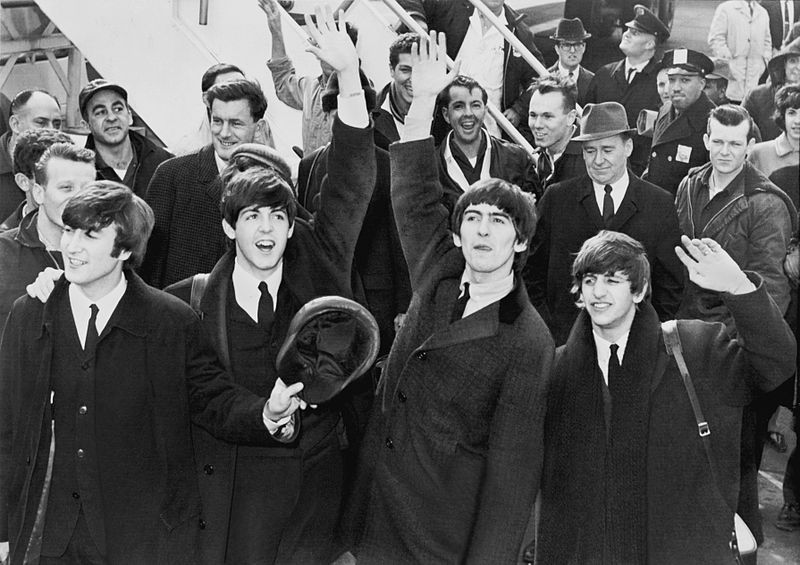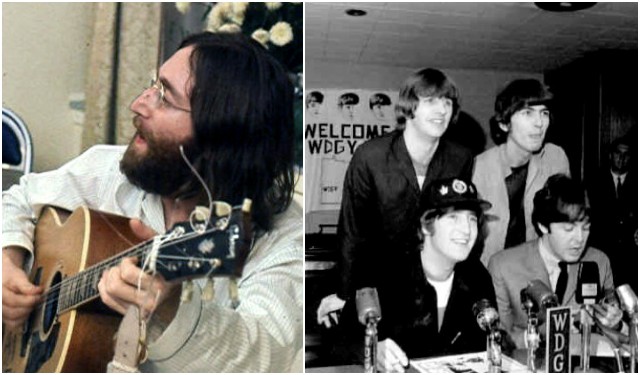On March 4th, 1966, in the London Evening Standard appeared an article where Lennon compared the group’s popularity with the Christian praise.
The interview “How Does A Beatle Live? John Lennon Lives Like This” written by Maureen Cleave- a very close friend of Lennon and all the Beatles, would later be labeled as controversial, provoking outrage in the United States where conservative Christians burned piles of Beatles albums.
“Christianity will go,” Lennon said. “It will vanish and shrink. I needn’t argue about that; I know I’m right and I will be proved right. We’re more popular than Jesus now. I don’t know which will go first – rock & roll or Christianity. Jesus was all right but his disciples were thick and ordinary. It’s them twisting it that ruins it for me.”

When the interview first appeared, there were no incidents in Britain but when it was reprinted in the American teen magazine Datebook on July 29th, 1966, the scandal began.
Alabama disc jockeys, Doug Layton and Tommy Charles of WAQY, initiated a “Beatle Boycott” and urged people to burn their Beatles records.
Radio stations across the United States banned The Beatles from their playlists and the Beatles even received death threats.
They were about to begin a U.S. tour when their manager Brian Epstein appeared at a press conference in New York and tried to explain that Lennon’s words were taken “out of context”.
Lennon also apologized at a press-conference saying: “I’m not anti-Christ or anti-religion or anti-God. I’m not saying we’re better or greater or comparing us with Jesus Christ as a person, or God as a thing or whatever it is. I just said what I said and was wrong, or was taken wrong and now it’s all this.
However, the tour went on as planned and in 17 days the Beatles went in 14 different cities. Anti-Beatles demonstrations were held in every city they went and several Baptist ministers threatened to excommunicate their congregation members if they dared to attend the concerts.
At the concert in Memphis, a firecracker went off and sounded like a gunfire. The Beatles feared an assassination attempt and decided to give up the tour’s completion.
Today, even the Vatican has pardoned Lennon. L’ Osservatore Romano, praising the Beatles in an article, said Lennon had just been showing off.
The paper dismissed Lennon’s much-criticised remark that the Beatles were more famous than Jesus Christ as a youthful joke.

“The remark by John Lennon, which triggered deep indignation, mainly in the United States, sounds only like a “boast” by a young working-class Englishman faced with unexpected success, growing up with the legend of Elvis and Rock ‘n Roll. The fact remains that 38 years after breaking up, the songs of Lennon-McCartney’s brand have shown extraordinary resistance to the passage of time, becoming a source of inspiration for more than one generation of musicians.”
The fact remains that 38 years after breaking up, the songs of Lennon-McCartney’s brand have shown extraordinary resistance to the passage of time, becoming a source of inspiration for more than one generation of musicians.”
